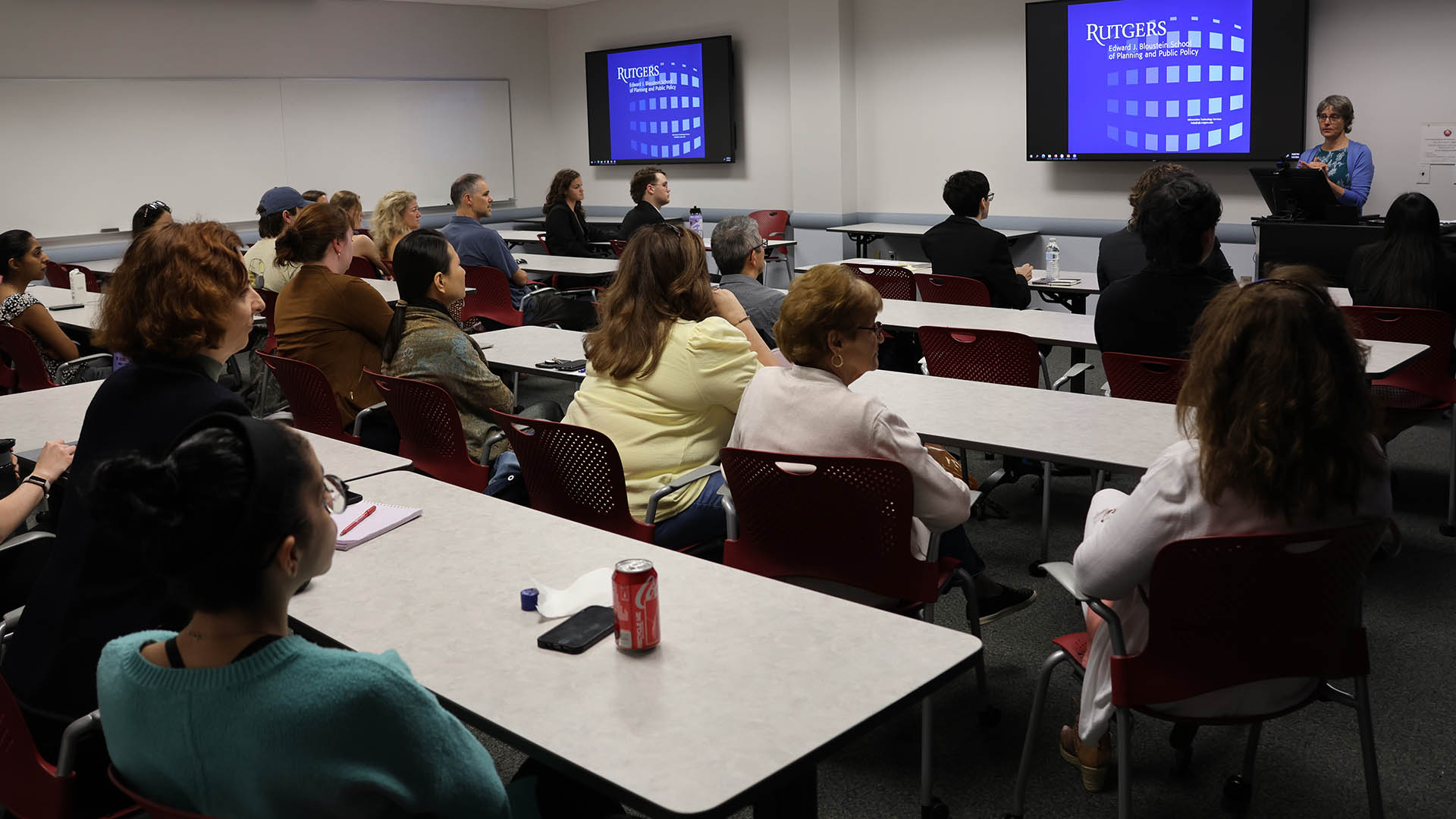The Rutgers Micromobility 2.0 workshop, funded by the National Science Foundation in partnership with the Federal Highway Administration, provided tantalizing glimpses of a better future that seamlessly incorporates micromobility alongside pedestrians, cars, and transit.
Topic
micromobility
Research: Powering Bikeshare in New York City
In this study, we investigate the difference between shared electric bicycles (e-bikes) and conventional shared bikes operated by Citi Bike in New York City.
New Research – Gender split and safety behavior of cyclists and e-scooter users in Asbury Park, NJ
In this study, researchers Hannah Younes, Robert B. Noland, and Clinton J. Andrews used traffic camera footage to observe the behavior of over 700 shared e-scooters and privately owned bicycles in Asbury Park, New Jersey. The authors discuss policy implications with regard to safety and gender differences between the two modes of transit.
Von Hagen, Meehan, and Younes’ Micromobility Pop-up Bike Lane mentioned in Smart Cities Dive
Voorhees Transportation Center staff Leigh Ann Von Hagen, Sean Meehan, and Hannah Younes led a Spring 2022 studio to encourage micromobility use in Asbury Park, NJ by improving user safety and comfort. Smart Cities Dive featured the pop-up bike lane project, its...
Research: Does weather affect micromobility?
When deciding whether to use a shared dockless e-bike, docked bikeshare, or shared e-scooter, weather is often a factor in user decision making.
Faculty Profile: Will Payne
Dr. Payne sought to combine data and digital mapping to examine the downstream effects of upscale consumption space on urban life and housing markets.
Faculty Profile: Wenwen Zhang
Dr. Zhang joined the Bloustein School in August 2020. Her research focuses on the social and policy impacts of emerging transportation technologies
Bloustein School is recipient of $1.5M grant focusing on making micromobility safer, smarter
These NSF investments create scientific and engineering foundations for smart cities and communities and help enhance overall quality of life.
Upcoming Events
Undergraduate New Student Information Session for Fall 2024 Majors
Bloustein School, Civic Square Building 33 Livingston Avenue, New Brunswick, NJ, United StatesIn-Person Session August 27th The Bloustein School is hosting the annual undergraduate student orientation for new majors on Tuesday, August 27, 2024. Newly enrolled direct-admit students in Planning and Public Policy, […]
International Student Resources Information Session and Panel
VirtualMeet your Bloustein Graduate student services/career team and the Bloustein Liaison to our international students. The second hour will be a panel of international alumni who will share their journey […]
Virtual Career Drop-ins
VirtualStop by virtually on Mondays (except for holidays) beginning September 9th through December 16th between 11 am and 1 pm to ask a quick (15 min) career-related question of Bloustein […]
Virtual Career Drop-ins
VirtualStop by virtually on Mondays (except for holidays) beginning September 9th through December 16th between 11 am and 1 pm to ask a quick (15 min) career-related question of Bloustein […]
Undergraduate Research Discovery Session: Public Health and Public Policy
Bloustein School, Civic Square Building 33 Livingston Avenue, New Brunswick, NJ, United StatesDr. Jane Miller will present information about the Bloustein Honors Research Program (BHRP) and independent study options available. Dr. Liz Cooner, Director of the NJ State Policy Lab, will be […]




